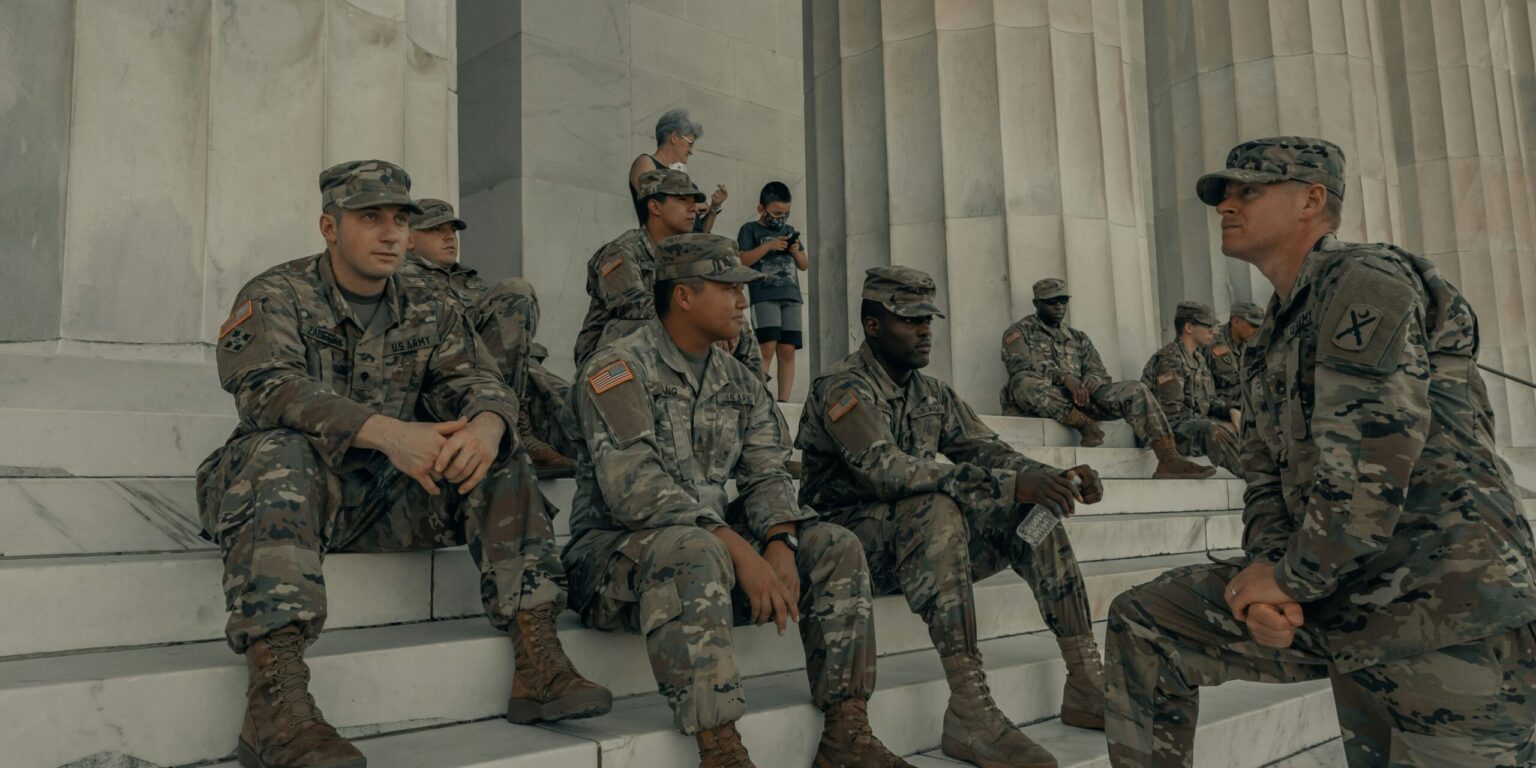On June 13, 2025, approximately 700 U.S. Marines were deployed to Los Angeles to secure federal buildings amid escalating protests against the Trump administration’s immigration policies. The deployment, which initially began with 200 troops, is expected to increase further as part of the government’s response to growing unrest in response to the administration’s immigration enforcement actions. The decision has drawn strong reactions from both critics and supporters, with tensions mounting ahead of planned nationwide demonstrations under the “No Kings” banner, protesting not only the immigration policies but also the government’s controversial military parade in Washington, D.C.
Background of the Deployment
The deployment follows a series of intensified protests in Los Angeles and across the country. These demonstrations are driven by opposition to the Trump administration’s immigration policies, particularly the controversial raids aimed at detaining undocumented immigrants. In addition to these raids, the administration’s recent decision to release Medicaid enrollee data to deportation officials has further exacerbated tensions. Critics argue that the release of this data constitutes a violation of privacy rights, putting immigrant communities at even greater risk of deportation.
Federal buildings, especially those housing immigration offices, have become focal points of protests in Los Angeles, where the mood has turned from anger to concern about the increasing militarization of law enforcement. The government’s decision to call in the Marines for backup has further fueled the debate over the role of the military in domestic civil affairs.
Legal and Political Repercussions
California’s leadership has expressed strong opposition to the federal government’s decision to deploy active-duty troops in Los Angeles. Governor Gavin Newsom, along with other state leaders, has publicly condemned the military presence, citing concerns over state sovereignty and the potential violation of the Posse Comitatus Act, which limits the use of the military in domestic law enforcement unless explicitly authorized by Congress.
In response to the deployment, California’s attorney general filed a lawsuit, arguing that the move is an overreach of federal power and that the deployment of military personnel to enforce civilian law is unconstitutional. Despite an initial federal ruling in favor of blocking the deployment, a federal appeals court later overturned the decision, allowing the Marines’ presence in Los Angeles to continue as protests intensified. This ruling has sparked further legal challenges, with advocates for civil liberties warning that such a decision could set a dangerous precedent for federal military involvement in civilian affairs.
Nationwide Protests and the “No Kings” Movement
The deployment of Marines to Los Angeles coincides with the rise of the “No Kings” movement, which has gained significant momentum in recent months. This national protest movement, characterized by its grassroots mobilization, opposes President Trump’s immigration enforcement strategies and the growing militarization of the state. The “No Kings” movement calls for policy reversals, greater transparency in government operations, and an end to the use of military force in policing and public demonstrations.
Nationwide protests have been organized across hundreds of cities, with Los Angeles emerging as one of the most vocal centers of resistance. Activists argue that the Trump administration’s actions are designed to intimidate vulnerable communities, particularly those who are already fearful of deportation and retaliation.
Local leaders have expressed concern over the federal government’s heavy-handed approach. Los Angeles Mayor Karen Bass, along with several city council members, has denounced the presence of the Marines, asserting that the situation could have been handled by local law enforcement without the need for federal intervention. The military presence has been compared to the overreach seen during the 1992 Los Angeles riots, when National Guard troops were deployed in response to civil unrest following the Rodney King verdict.
The Federal Government’s Justification
In contrast, President Trump has staunchly defended the military’s involvement, stating that the deployment is necessary to protect federal property and maintain order amid rising chaos in the city. He has also emphasized that the presence of the Marines is intended to safeguard law and order, ensuring that federal buildings remain secure despite the ongoing protests.
Trump has lauded a recent court ruling that permits the use of the National Guard in California and described it as a victory for national security and stability. The President’s office has argued that the military’s presence is essential in protecting public property and supporting law enforcement officials overwhelmed by the scale of the protests.
Despite the administration’s justifications, many activists and civil rights groups view the deployment of the Marines as a symbolic gesture that further intensifies political and social divisions across the country. They argue that it reflects a broader pattern of militarized responses to domestic issues, from immigration enforcement to public protests.
Local and National Reactions
While the federal government maintains that the military is in place to maintain peace and protect federal assets, local community leaders and civil rights organizations are concerned about the potential for further escalation. The situation in Los Angeles has brought to the forefront questions about the balance of power between federal and state authorities, and the limits of military involvement in civilian matters.
In the weeks following the deployment, several prominent activists have called for broader protests against the militarization of law enforcement. Demonstrations are expected to grow in size, with the “No Kings” movement planning events across the country, from New York City to Chicago to San Francisco.
As the situation develops, Los Angeles is poised to become a key battleground in the ongoing debate about immigration policy and the role of the U.S. military in civilian affairs. Whether or not the presence of the Marines will have a long-lasting impact on the national discourse remains to be seen, but it is clear that the protests, and the public discourse surrounding them, will continue to shape American politics in the months ahead.
